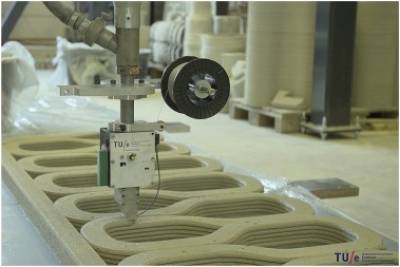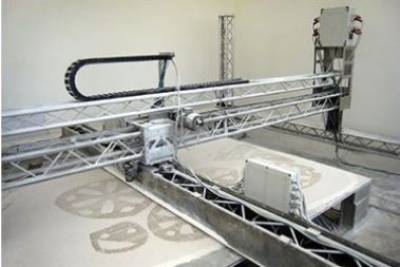BSSC Academics awarded funding worth £220k for a Knowledge Transfer Partnership
17 July 2023
Academics from The Bartlett School of Sustainable Construction have been awarded a £220k funding for a 24-month-long Knowledge Transfer Partnership project on sustainable/low-carbon additive manufacturing.

Dr Selçuk Çıdık, Dr Qiuchen Lu, Dr Laura Florez-Perez and Dr Abdul-Majeed Mahamadu have been awarded a £220k funding by Innovate UK and British Standards Institution (BSI) for a 24-month-long Knowledge Transfer Partnership project with BSI.
Knowledge Transfer Partnership (KTP) funding by Innovate UK aims to enable unique collaborative partnerships, creating positive impact and driving innovation. KTPs connect forward thinking businesses with the UK’s world class knowledge bases to deliver a business led innovation projects. KTPs are developed to solve a specific, strategic innovation challenge faced by the business partner.
In this project, BSI partners with academics from BSSC to develop and launch an assurance scheme for sustainable/low-carbon additive manufacturing (AM) in construction. This will widen the uptake of additive manufacturing, which is currently held back as no assurance schemes exist globally.


This project will fully understand regulatory, process and data requirements to enable a less carbon-intensive, and circular built environment, integrating a novel and cohesive approach for sustainable/low-carbon additive manufacturing in construction. Key to the scheme's development is engaging stakeholders, including potential clients, to gather best practices. Thus, the project team will provide a whole-system solution, including factory production control, materials, machine, programming/coding, and testing regime. Here, UCL team’s deep domain expertise will be embedded into BSI via a range of knowledge transfer methods.
Key areas of expertise that the academic team will contribute to the project includes:
- Economics and organisation of innovation and transformation in the built environment (to design an assurance scheme that can unlock the full innovative and transformative potential of AM)
- Sustainable materials, sustainability analysis in construction, and sustainable transition in the built environment (to ensure that the assurance scheme supports a shift towards net zero construction industry supported by sustainable AM)
- Industrialised manufacturing and systems integration in construction (to develop an assurance scheme that effectively addresses and facilitates the distributed production inherent to AM)
- Digital innovation, digital modelling, and human-computer interaction (to develop the digital infrastructure required for the assurance scheme to cope with the distributed nature of AM)
Dr Selçuk Çıdık said: “We are delighted that our KTP funding application with BSI has been succesful. Additive manufacturing (AM) in construction is a nascent area with a huge potential, but its uptake is hampered by a number of economic, organisational and regulatory issues surrounding it. Through this project, we will be able to better understand the existing practices and challenges of AM in construction. We will use that understanding to develop and launch an assurance scheme for sustainable/low-carbon additive manufacturing for BSI.This will increase the trust and confidence in this nascent area, which will drive the uptake, and further AM-based innovation, towards a more sustainable and efficient construction industry. Besides, the BSSC team will have a chance to develop academic insights into the topic of ‘assurance’, which is left largely untouched in construction research.
I would like to thank Alex Lubbock and Amy Dann from BSI, as well as Dr Qiuchen, Dr Laura and Dr Abdul from BSSC, for their great efforts in putting the proposal together. I would like to also thank Dr Joe Welch and Dr Aysha Chaudhary from UCL Innovation and Enterprise, as well as Mark Lynch from Innovate UK, who have been instrumental in developing a succesful proposal.”
Editor's note: Source of the images to illustrate digital methods for planning 3D-printed building parts can be accessed here.
 Close
Close

